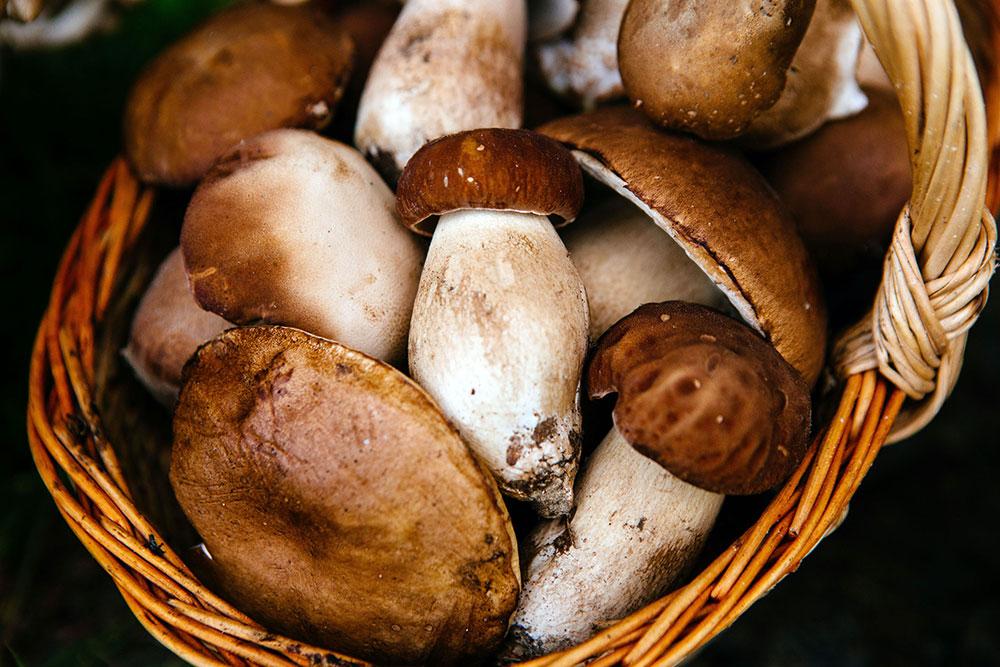是蘑菇还是肉?一家食品初创公司让你傻傻分不清

虽然许多植物基人造肉公司都声称能够真正复制出肉的味道,但行业领导者Beyond Meat Inc.和Impossible Foods所销售的商品大部分都是仿造了碎牛肉或火腿,却无法模仿一块完整牛肉的质地。
现在,有一家初创公司想要改变这一切。该公司致力于将蘑菇制成人造肉。Meati Foods公司将使用菌丝体制作肉干、鸡胸肉、牛排和熟食肉类。菌丝体是可以让蘑菇快速生长的一种根部结构。该公司得到了格兰特•阿卡兹和戴维•巴伯等知名餐厅老板的投资。
Meati的首席执行官及联合创始人泰勒•哈金斯说:“人类从吃蘑菇开始,就一直在食用菌丝体。菌丝体的优势在于它的适应性极强。”
某些菌丝体会生长出我们所熟悉的蘑菇菌盖,而且蘑菇还被用作塑料替代品、运输材料、房屋隔热材料和人造皮革等,比如阿迪达斯(Adidas)为支持素食主义推出的明星鞋款Stan Smith的原材料中就使用了蘑菇。
植物基和细胞培养食物倡议组织Good Food Institute的卡罗琳•布什内尔表示,使用蘑菇制作人造肉是一种相对较新的技术,但它的前景一片光明。
布什内尔认为,人造肉公司面临的最大障碍是完全复制动物组织的质地。这也是Beyond、Impossible和雀巢(Nestle)首先推出汉堡和其他碎肉制品的部分原因。家乐氏(Kellogg Co.)旗下的Morningstar Farms品牌销售人造肉已经有数十年历史。该公司经过两年研发之后最近发布了第一款模仿动物肌肉切块的产品“鸡柳”。
与这些公司相反,Meati的做法是从世界各地的草原收获生长迅速的菌丝体。然后将蘑菇放入大型金属发酵罐中。在罐中加糖发酵18个小时,类似于啤酒的酿制过程。最终得到的大块成品的纹理类似于真实肉类,容易塑形,并且富含蛋白质、锌、纤维等维生素和矿物质。
彭博行业研究(Bloomberg Intelligence)最近的一份报告显示,未来十年,人造肉市场的规模预计将从2020年的42亿美元增长到740亿美元。虽然人造肉市场在1.3万亿美元传统肉类市场所占的比例不足1%,但分析师、食品公司和投资者都预测该行业将迎来大量发展机会,类似于Beyond Meat在2019年上市和Impossible Foods进入沃尔玛(Walmart Inc.)等主流超市。
但Meati这些新公司以及另外一家基于菌丝体的人造培根肉公司Atlast,必须与Beyond、Impossible等老牌素食品牌竞争。它们必须想方设法吸引消费者,因为人造肉更高的价格可能令消费者望而止步:美国农业部(USDA)公布的每磅碎牛肉的成本为4.38美元,而每磅Beyond Meat人造肉的成本为8.39美元,Impossible Foods碎肉制品的成本为6.49美元。
Meati现有员工40人,其产品尚未开始进入食品杂货店销售。该公司尚未公布定价,但表示其产品的价格将接近于标准动物蛋白制品的价格。该公司已经在当地餐厅开展了初步市场测试,并计划在2022年全面上市。
Meati于2019年在美国能源部(U.S. Department of Energy)的创业计划中脱颖而出。哈金斯是一名野外生物学家和环境工程师,公司的另外一位创始人贾斯汀•怀特利是一名训练有素的材料科学家。两人共同创立Meati(最初名为Emergy Foods)的初衷,是希望找到一种需要更少化学品和加工的环保肉类替代品。两人在创业计划结束后获得了500万美元融资,在美国科罗拉多州博尔德建了第一家工厂。该公司到目前为止没有任何收入。其在7月完成了5000万美元B轮融资。
哈金斯表示,公司的目标群体不只是素食主义者和具有环保意识的群体。他希望人们选择他的产品,是因为他的产品比传统动物肉类更受消费者喜爱。
他说:“据我所知,我们的Meati牛排在堪萨斯农村的一家餐厅很受欢迎。和其他所有人一样,他们认为这款产品就是为他们而造的,他们看到了它的价值,并且认为它味道鲜美。”(财富中文网)
翻译:刘进龙
审校:汪皓
虽然许多植物基人造肉公司都声称能够真正复制出肉的味道,但行业领导者Beyond Meat Inc.和Impossible Foods所销售的商品大部分都是仿造了碎牛肉或火腿,却无法模仿一块完整牛肉的质地。
现在,有一家初创公司想要改变这一切。该公司致力于将蘑菇制成人造肉。Meati Foods公司将使用菌丝体制作肉干、鸡胸肉、牛排和熟食肉类。菌丝体是可以让蘑菇快速生长的一种根部结构。该公司得到了格兰特•阿卡兹和戴维•巴伯等知名餐厅老板的投资。
Meati的首席执行官及联合创始人泰勒•哈金斯说:“人类从吃蘑菇开始,就一直在食用菌丝体。菌丝体的优势在于它的适应性极强。”
某些菌丝体会生长出我们所熟悉的蘑菇菌盖,而且蘑菇还被用作塑料替代品、运输材料、房屋隔热材料和人造皮革等,比如阿迪达斯(Adidas)为支持素食主义推出的明星鞋款Stan Smith的原材料中就使用了蘑菇。
植物基和细胞培养食物倡议组织Good Food Institute的卡罗琳•布什内尔表示,使用蘑菇制作人造肉是一种相对较新的技术,但它的前景一片光明。
布什内尔认为,人造肉公司面临的最大障碍是完全复制动物组织的质地。这也是Beyond、Impossible和雀巢(Nestle)首先推出汉堡和其他碎肉制品的部分原因。家乐氏(Kellogg Co.)旗下的Morningstar Farms品牌销售人造肉已经有数十年历史。该公司经过两年研发之后最近发布了第一款模仿动物肌肉切块的产品“鸡柳”。
与这些公司相反,Meati的做法是从世界各地的草原收获生长迅速的菌丝体。然后将蘑菇放入大型金属发酵罐中。在罐中加糖发酵18个小时,类似于啤酒的酿制过程。最终得到的大块成品的纹理类似于真实肉类,容易塑形,并且富含蛋白质、锌、纤维等维生素和矿物质。
彭博行业研究(Bloomberg Intelligence)最近的一份报告显示,未来十年,人造肉市场的规模预计将从2020年的42亿美元增长到740亿美元。虽然人造肉市场在1.3万亿美元传统肉类市场所占的比例不足1%,但分析师、食品公司和投资者都预测该行业将迎来大量发展机会,类似于Beyond Meat在2019年上市和Impossible Foods进入沃尔玛(Walmart Inc.)等主流超市。
但Meati这些新公司以及另外一家基于菌丝体的人造培根肉公司Atlast,必须与Beyond、Impossible等老牌素食品牌竞争。它们必须想方设法吸引消费者,因为人造肉更高的价格可能令消费者望而止步:美国农业部(USDA)公布的每磅碎牛肉的成本为4.38美元,而每磅Beyond Meat人造肉的成本为8.39美元,Impossible Foods碎肉制品的成本为6.49美元。
Meati现有员工40人,其产品尚未开始进入食品杂货店销售。该公司尚未公布定价,但表示其产品的价格将接近于标准动物蛋白制品的价格。该公司已经在当地餐厅开展了初步市场测试,并计划在2022年全面上市。
Meati于2019年在美国能源部(U.S. Department of Energy)的创业计划中脱颖而出。哈金斯是一名野外生物学家和环境工程师,公司的另外一位创始人贾斯汀•怀特利是一名训练有素的材料科学家。两人共同创立Meati(最初名为Emergy Foods)的初衷,是希望找到一种需要更少化学品和加工的环保肉类替代品。两人在创业计划结束后获得了500万美元融资,在美国科罗拉多州博尔德建了第一家工厂。该公司到目前为止没有任何收入。其在7月完成了5000万美元B轮融资。
哈金斯表示,公司的目标群体不只是素食主义者和具有环保意识的群体。他希望人们选择他的产品,是因为他的产品比传统动物肉类更受消费者喜爱。
他说:“据我所知,我们的Meati牛排在堪萨斯农村的一家餐厅很受欢迎。和其他所有人一样,他们认为这款产品就是为他们而造的,他们看到了它的价值,并且认为它味道鲜美。”(财富中文网)
翻译:刘进龙
审校:汪皓
While plenty of plant-based meat companies claim to replicate the taste of the real thing, industry leaders like Beyond Meat, Inc. and Impossible Foods mostly sell products that mimic ground beef or sausages, rather than the texture of a whole cut.
Now, a new startup focused on mushrooms wants to change that. Meati Foods, backed by famous restaurateurs like Grant Achatz and David Barber, is using mycelium, the vegetative root of a fungi to make jerky, chicken breast, beefsteaks, and deli meat.
“We’ve been eating mycelium ever since we’ve been eating mushrooms,” said Meati Chief Executive Officer and Co-Founder Tyler Huggins. “The advantage of mycelium is it’s very adaptable. ”
While some strains of mycelium grow the familiar mushroom caps, the fungi has also been used as plastic replacements, shipping material, housing insulation, and fake leather—like in the vegan style of Adidas’ signature Stan Smith shoe.
Using the substance for alternative meat is a relatively new practice but it shows promise, said Caroline Bushnell of Good Food Institute, an organization that advocates for plant-based and cell-based foods.
Properly replicating the texture of animal tissue is the biggest obstacle for fake meat companies, Bushnell said. That’s partly why market leaders like Beyond, Impossible and Nestle first tackled burgers and other ground meat products. Kellogg Co., whose Morningstar Farms brand has been selling alternative meat for decades, only just released its first muscle cuts, “chik’n tenders,” after more than two years of development.
By contrast, Meati harvests a fast-growing strain of mycelium from grasslands around the world. Then, it places pieces of the fungi in big metal tanks. The company adds sugar to the tanks and lets the substance cultivate for 18 hours in a process similar to brewing beer. The outcome: easily-moldable chunks that mimic the texture of real meat, packed with protein, zinc, fiber, and other vitamins and minerals.
In general, the alternative meat market is projected to grow from $4.2 billion in 2020 to $74 billion in the next ten years, according to a recent Bloomberg Intelligence report. Making up less than 1% of the $1.3 trillion conventional meat market, analysts, food companies, and investors foresee growth opportunities akin to Beyond Meat’s 2019 public listing and Impossible Foods Inc.’s entry into mainstream stores like Walmart Inc.
But upstarts like Meati—and mycelium-based bacon competitor Atlast—have to fight for shelf space alongside Beyond, Impossible and other established vegan brands. And they have to woo consumers who may be put off by higher price tags of fake meat: USDA ground beef costs $4.38 per pound, compared to $8.39 a pound of Beyond Meat and $6.49 of Impossible Foods ground meat product.
Meati, a 40-person company that hasn’t sold into grocery stores, said it hasn’t set prices yet but aims to offer a more affordable price point akin to standard animal protein products. The company has conducted preliminary market testing in local restaurants and plans to reach wider audiences in 2022.
Meati emerged from a U.S. Department of Energy entrepreneurship program in 2019. Huggins, a field biologist and environmental engineer, and his co-founder Justin Whiteley, a trained material scientist, started Meati, then called Emergy Foods, in pursuit of finding an environmentally-friendly meat substitute that required fewer chemicals and less processing. Following the program, the pair secured $5 million in funding to build an initial plant in Boulder, Colorado. The company, which doesn’t have any revenue yet, closed a $50 million round in Series B financing in July.
Huggins said his company aims to go beyond vegans and environmentally conscious eaters. He wants people to choose his product because they prefer it over traditional animal meat.
“I know we’re successful when our Meati steaks are served at a diner in rural Kansas,” he said. “They’ve understood this product is for them just like anybody else, and they see the value and they think it’s delicious.”













